THE Ryder Cup is back with some of the world’s best golfers battling it out as Europe host the United States.
The US are the trophy holders after a convincing 19-9 victory over their bitter rivals two years ago at Whistling Straits.
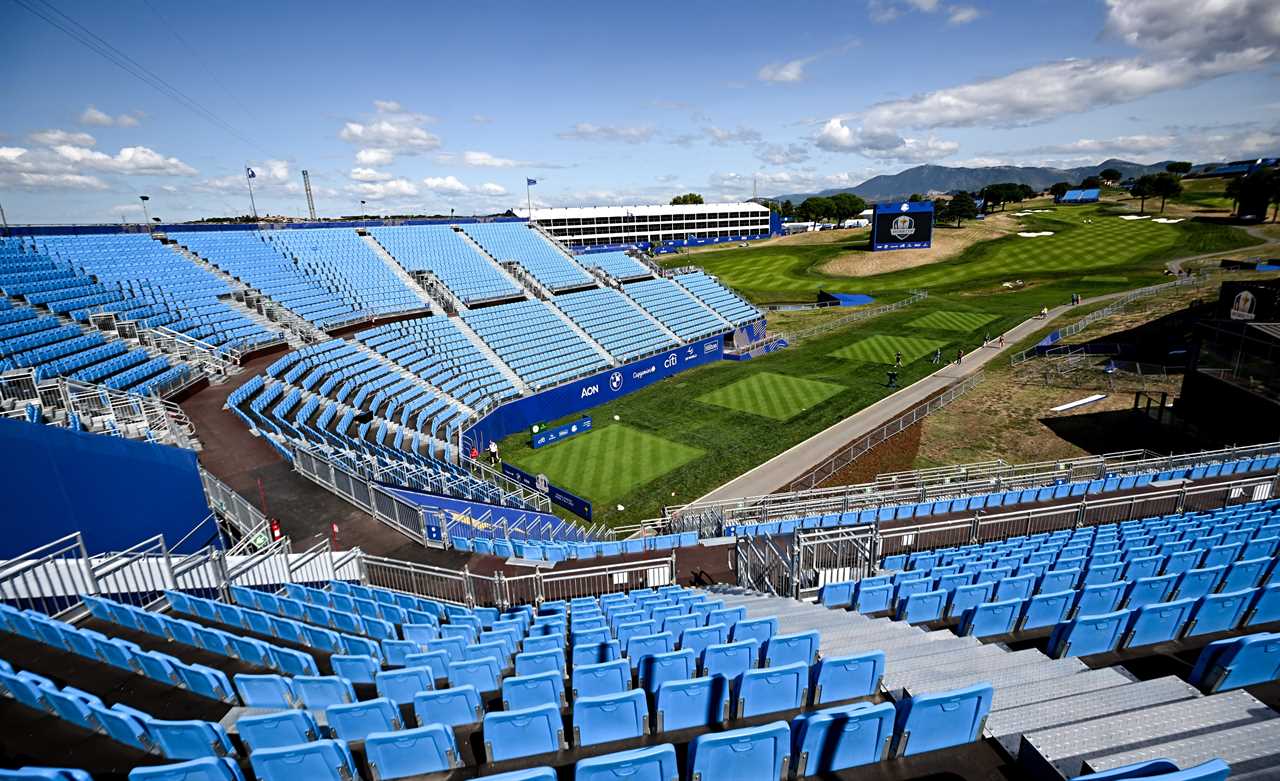
The 44th Ryder Cup begins this week

The Marco Simone Golf and Country Club in Rome hosts the event

Team Europe are hoping to regain the title after the US won in 2021

The Americans will look to become the first to win away since Europe won in Illinois back in 2012
Luke Donald captains the European team this year with the likes of Jon Rahm, Viktor Hovland, Rory McIlroy and Justin Rose involved.
Zach Johnson leads the Americans with Brooks Koepka, Rickie Fowler, Scottie Scheffler and Jordan Spieth as they hope to make it back-to-back wins.
The Marco Simone Golf and Country Club on the outskirts of Rome, Italy is the venue ready for the drama that gets underway on September 29.
The course has a stunning mix of long and short holes with the thick rough, blind shots, huge bunkers and the sweltering heat set to provide additional challenges.
A picturesque castle overlooks the fairways and even some swamp rats might be spotted roaming the grounds at Marco Simone.
Ahead of the 44th edition of the Ryder Cup, SunSport take a hole-by-hole look at the course awaiting the players.

CASINO SPECIAL – BEST CASINO WELCOME OFFERS
No.1, 445 yards, Par 4:
The bold play is to challenge the left bunker on the slight dogleg left and keep short of two bunkers on the right. That will leave a short iron to the green.
To play it safer will leave a mid-iron to a green protected by a steep ridge in front of a large bunker to the left.
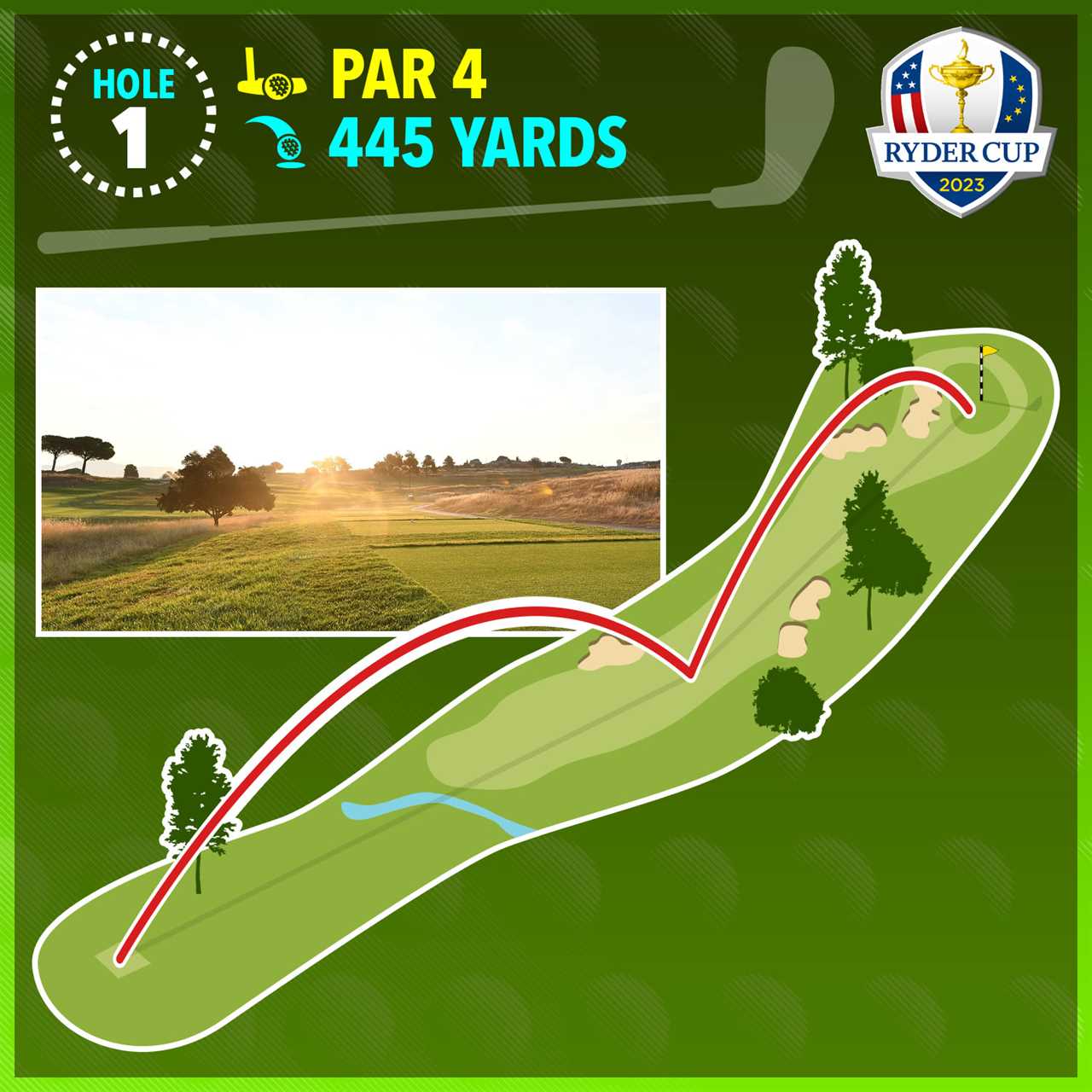
No.2, 476 yards, Par 4:
A 275-yard shot should cover a bunker, with two more bunkers beyond it. The safe shot is a shorter club to the right.
There’s a bunker about 45 yards short of the green and a severe slope beyond and left of the green.
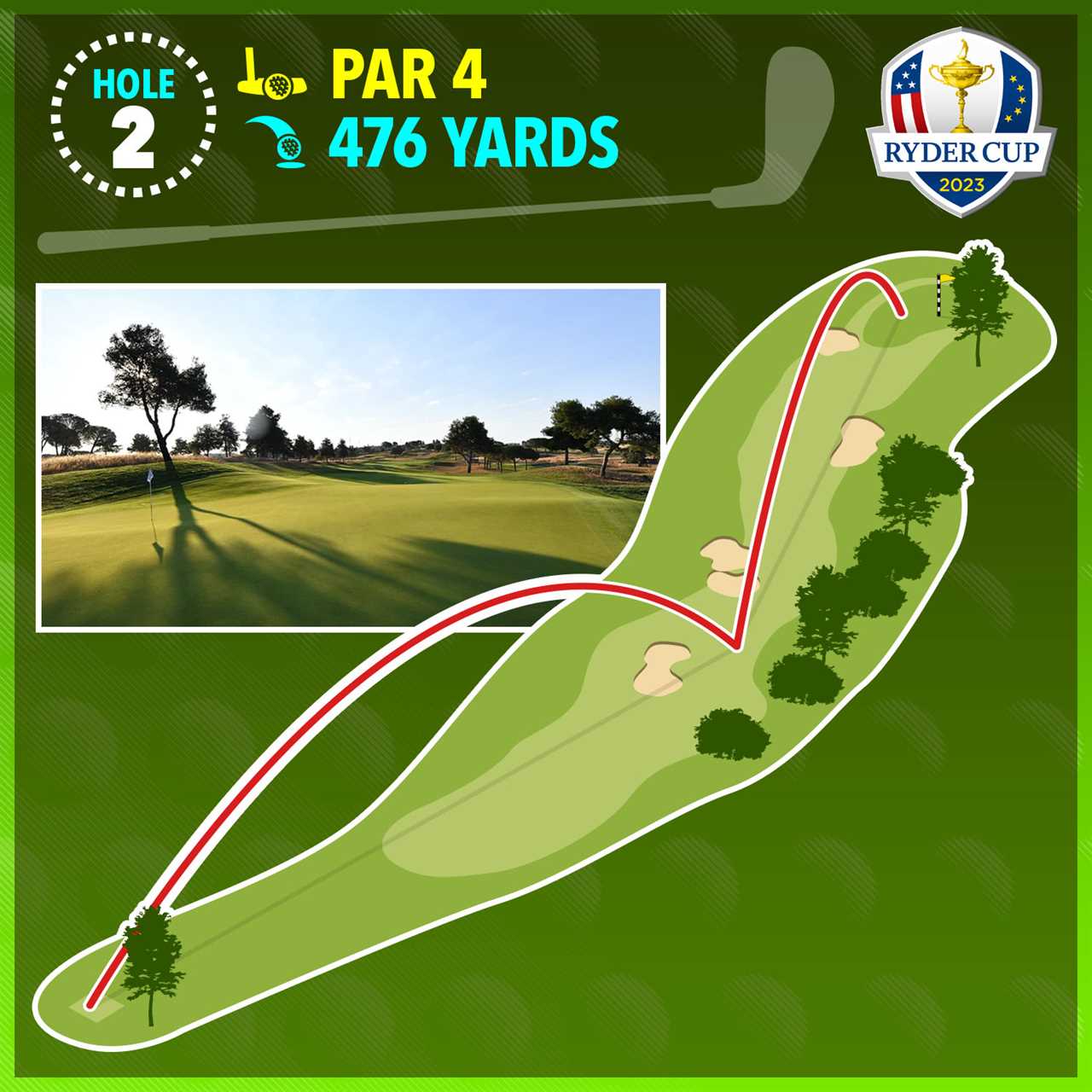
No.3, 453 yards, Par 4:
The deep native grass offers two options. A safe, straight shot leaves a mid-iron to a slightly elevated green.
Or big hitters can try to cut the right corner of the dogleg, but the fairway is framed by the deep stuff.
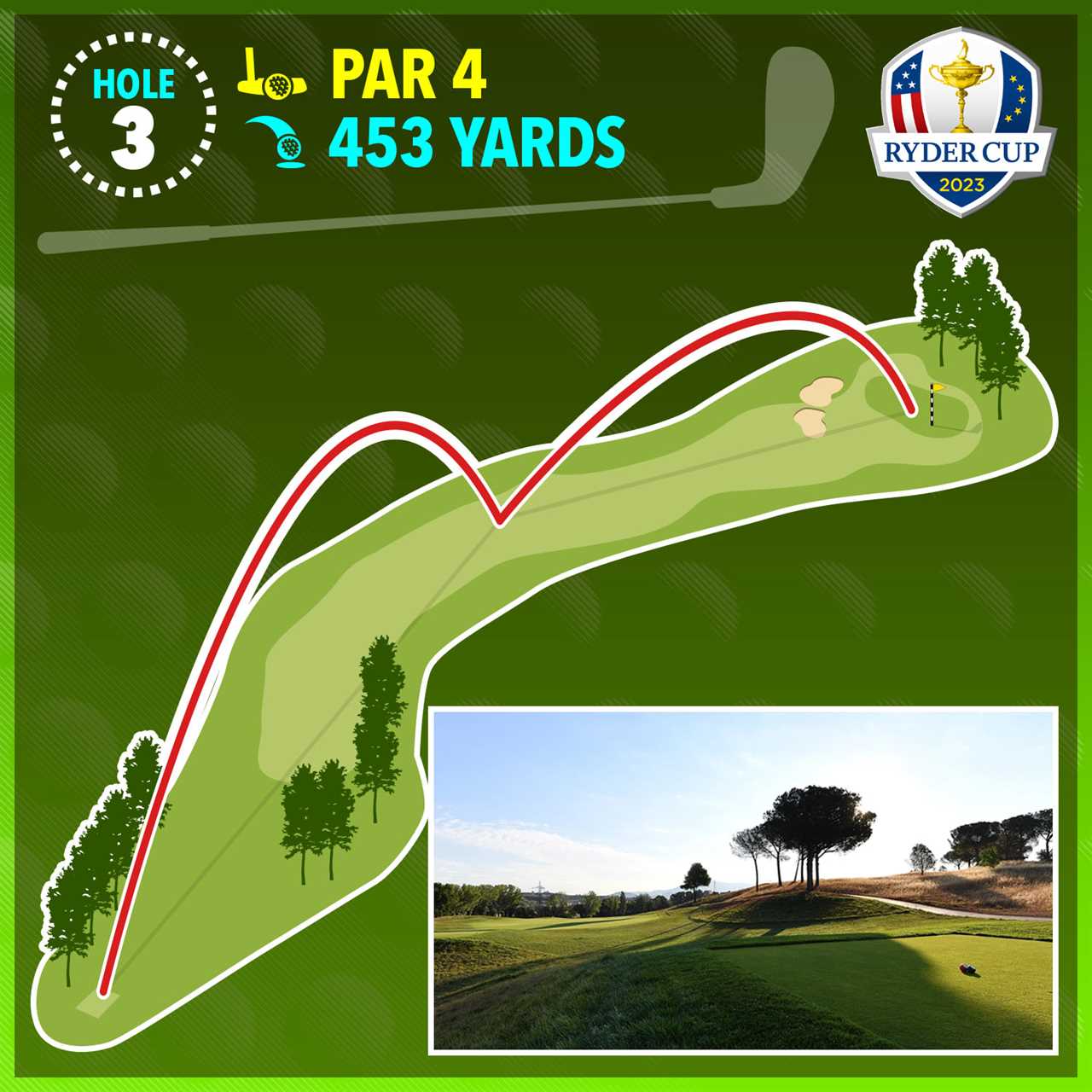
No.4, 185 yards, Par 3:
The hole plays slightly downhill and should be little more than a short iron to a two-tiered green. Two bunkers must be avoided.
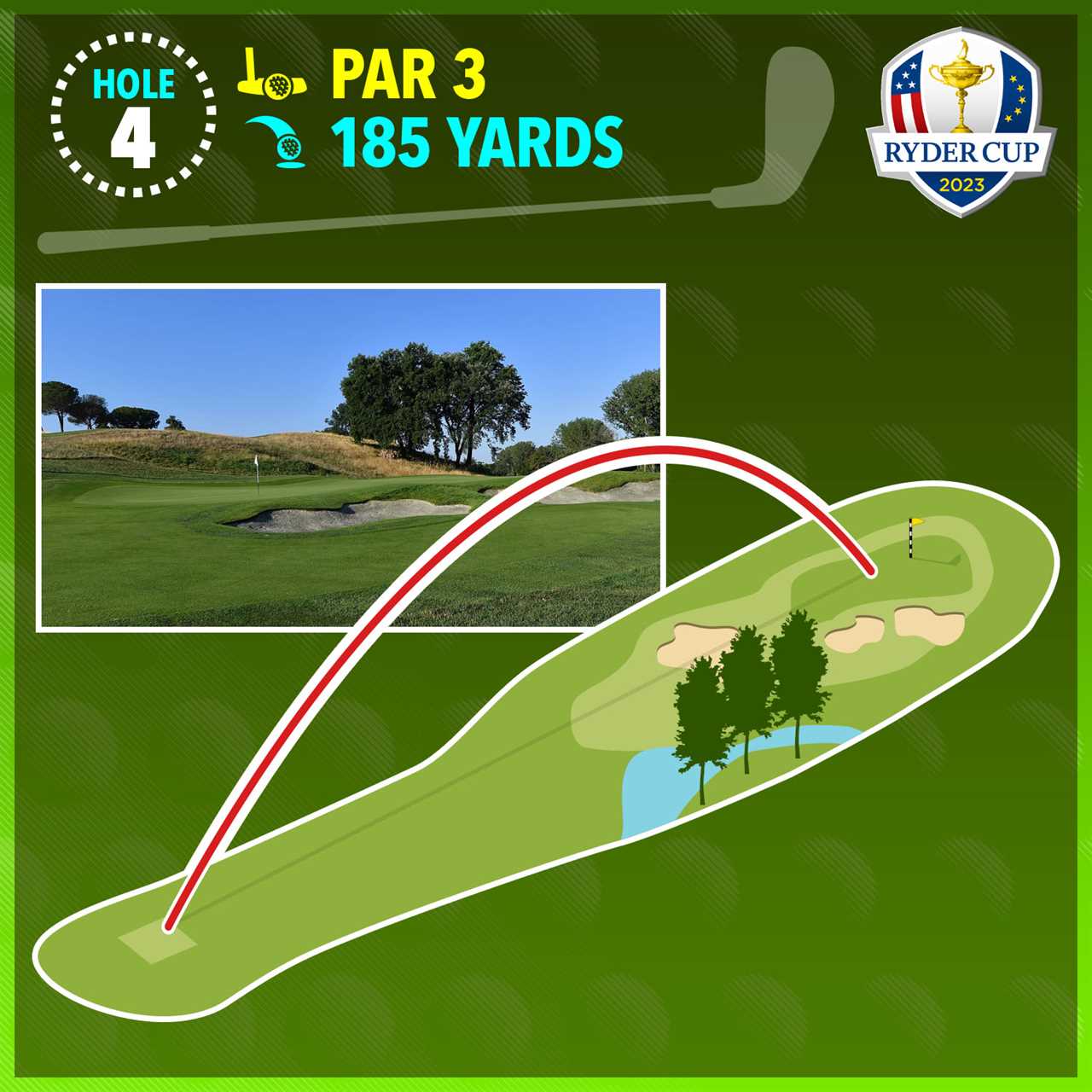
No.5, 376 yards, Par 4:
This hole presents the first water hazard on the course.
It gives players an option to use the driver down the right side and leave a short iron to the green, or play short of the water and leave a longer shot to the hole.
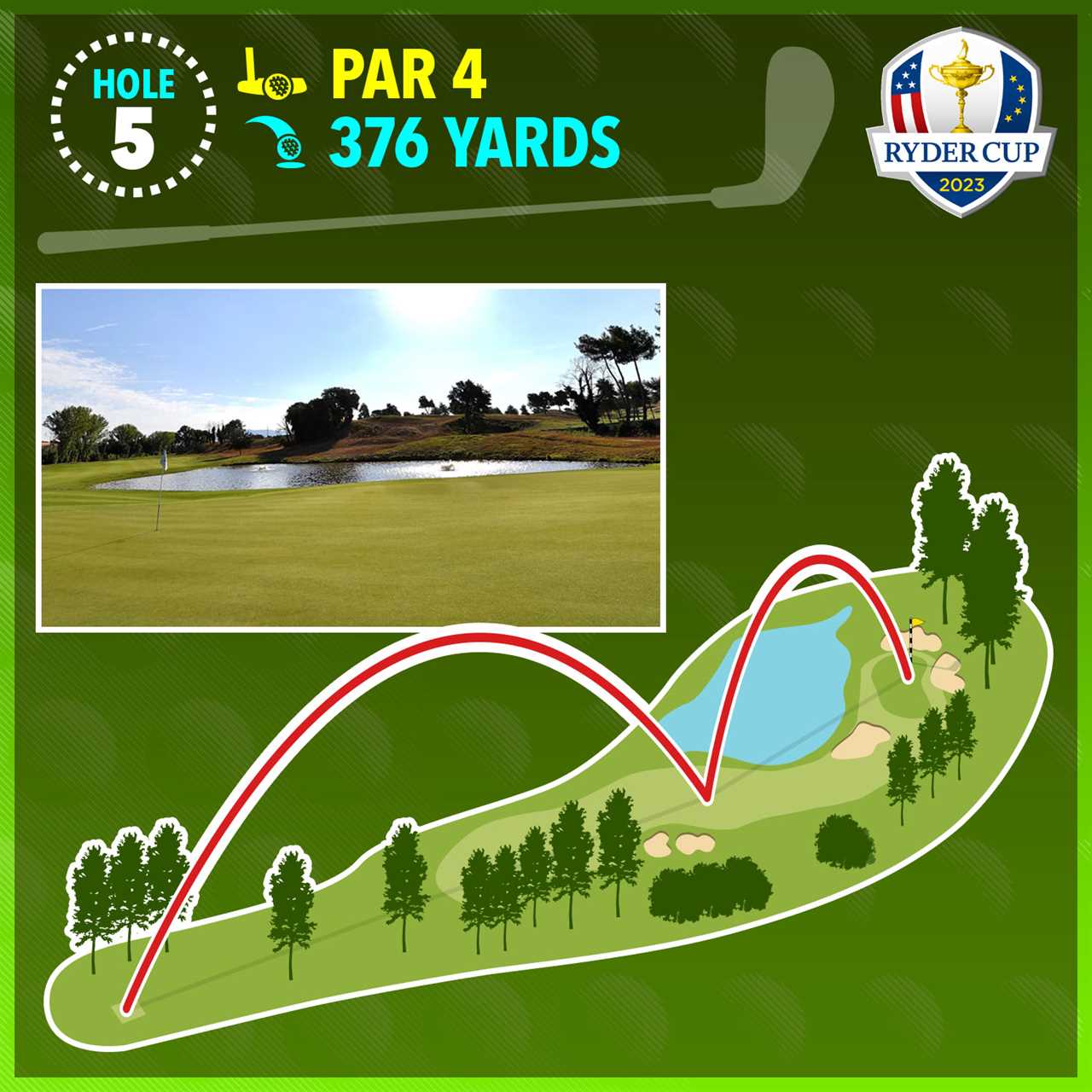
No.6, 383 yards, Par 4:
Players will have the option of playing short of a huge bunker on the right or squeezing a driver over the bunker to leave a flip wedge to green with several ridges.
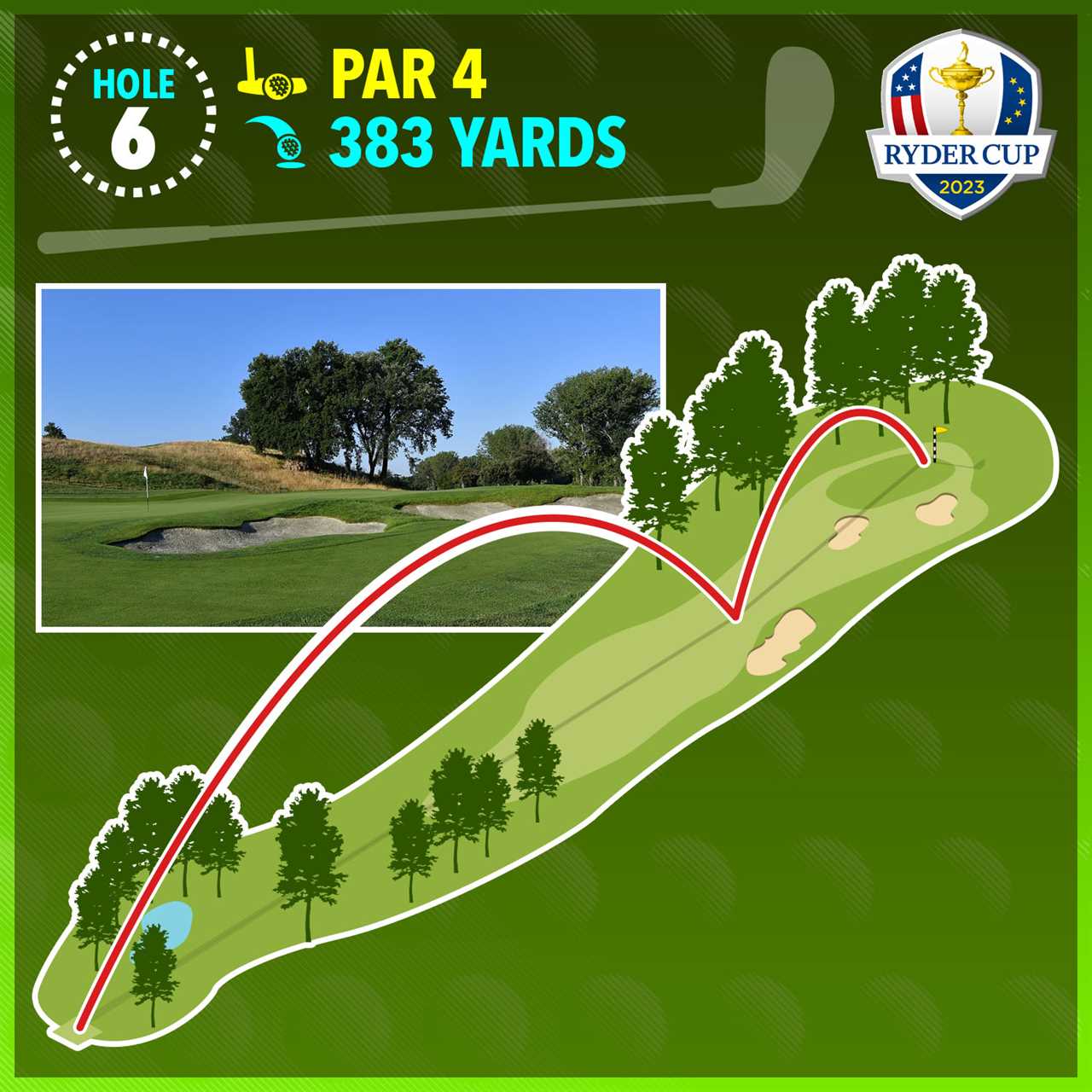
No.7, 219 yards, Par 3:
The hole can play anywhere from 145 yards to 220 yards depending on tees and particularly pin positions on this long, kidney-shaped green with two bunkers.
Two putts from long range on this green will be adventurous.
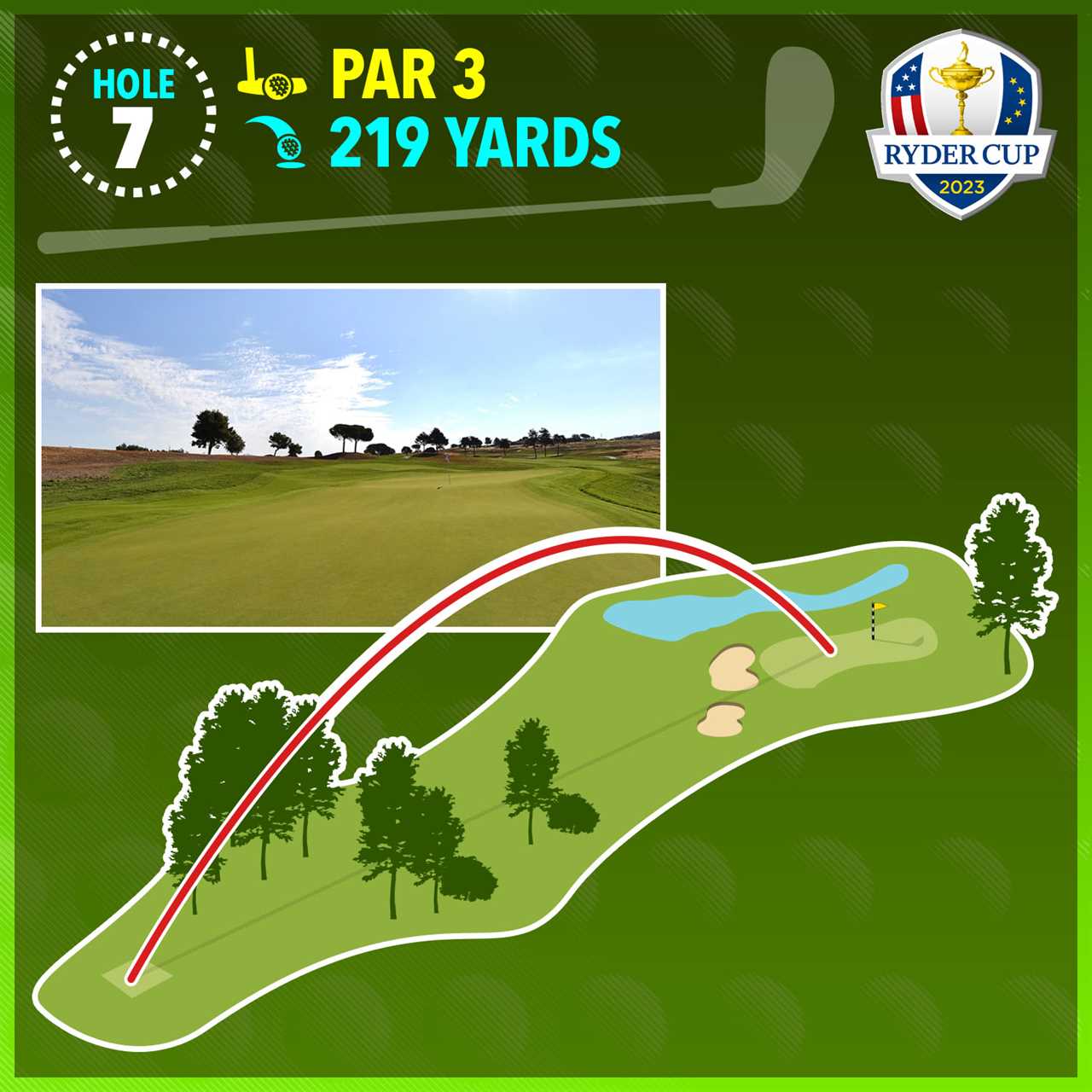
No.8, 503 yards, Par 5:
This will be easily reachable in two, but the drive must stay short of the water, which wraps around the left of the green.
Anyone having to lay up has to keep it down the right for a good angle with the wedge.
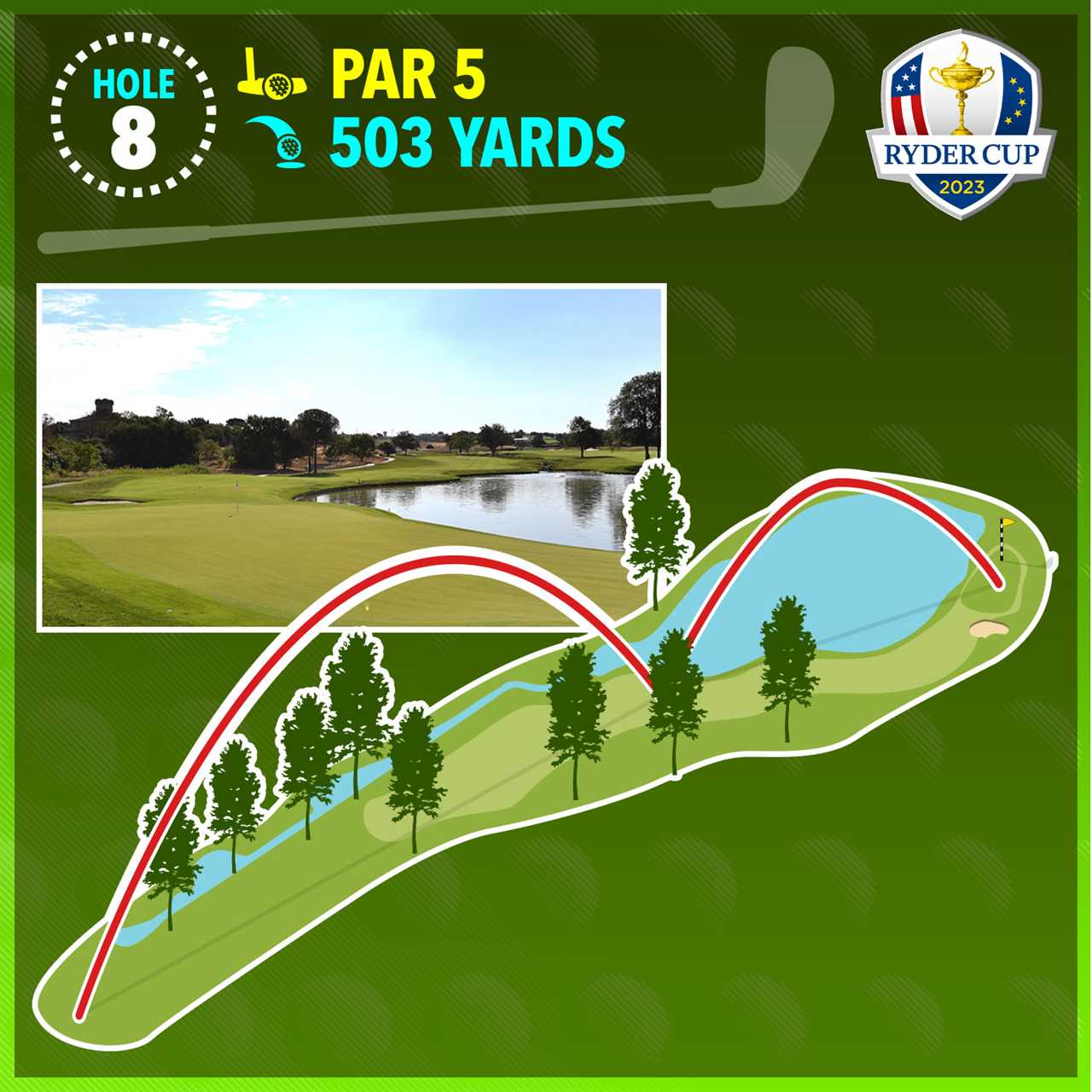
No.9, 587 yards, Par 5:
The drive must avoid two bunkers on the right before contemplating whether to try to reach the green in two.
This runs opposite the eighth hole, and there’s a small area of water left of the green. The trouble is long into native grass for the bunkers framing the right side of the green.
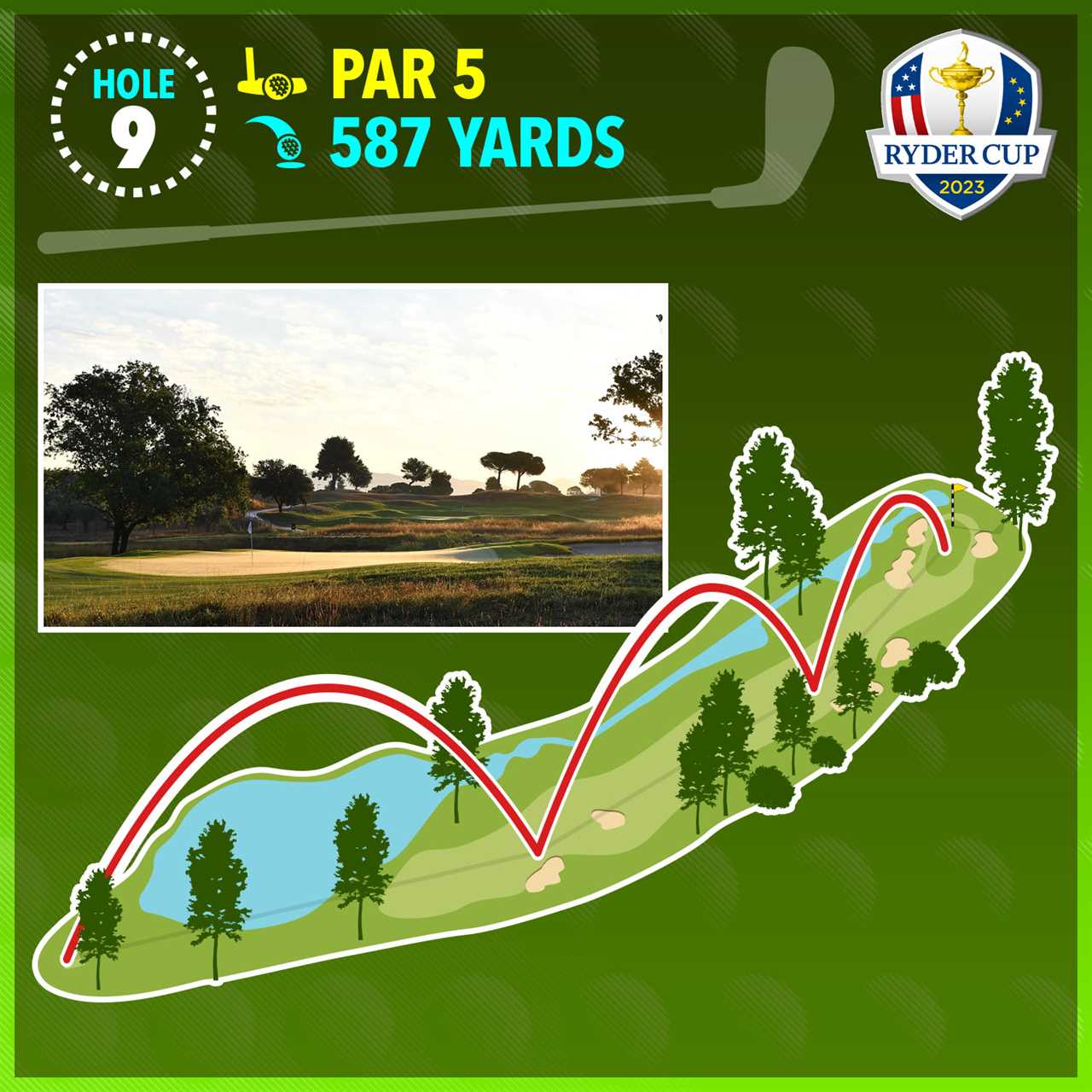
No.10, 455 yards, Par 4:
A strong drive to the centre of the fairway leaves a short or mid-iron to the green, which is protected by two bunkers on the right.
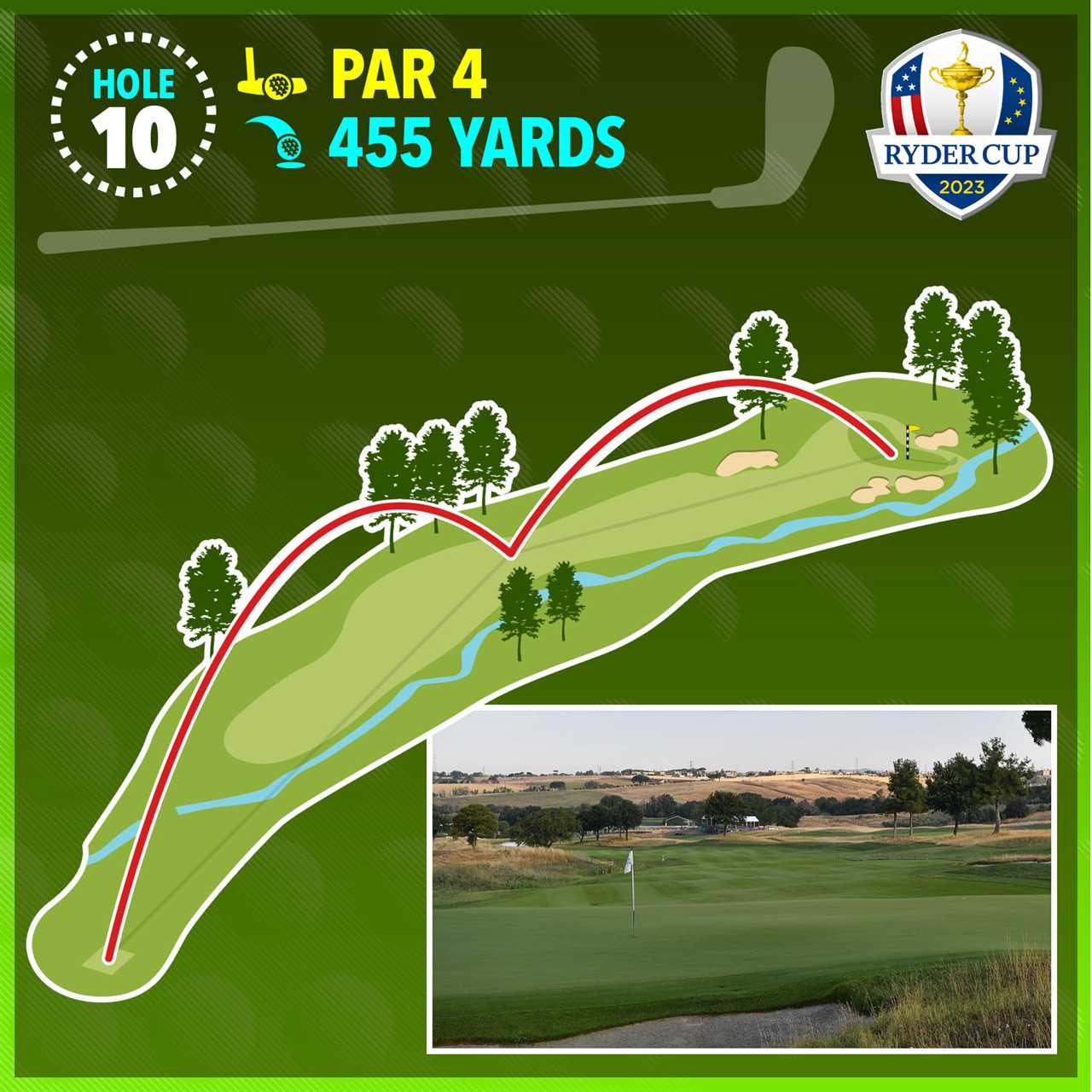
No.11, 330 yards, Par 4:
How to approach this reachable par 4 depends on the pin position.
The hole plays slightly uphill, a steep slope short and right sends the ball into a depression area.
A back left pin might lead players to lay up because of the bunkers sat on the left side.
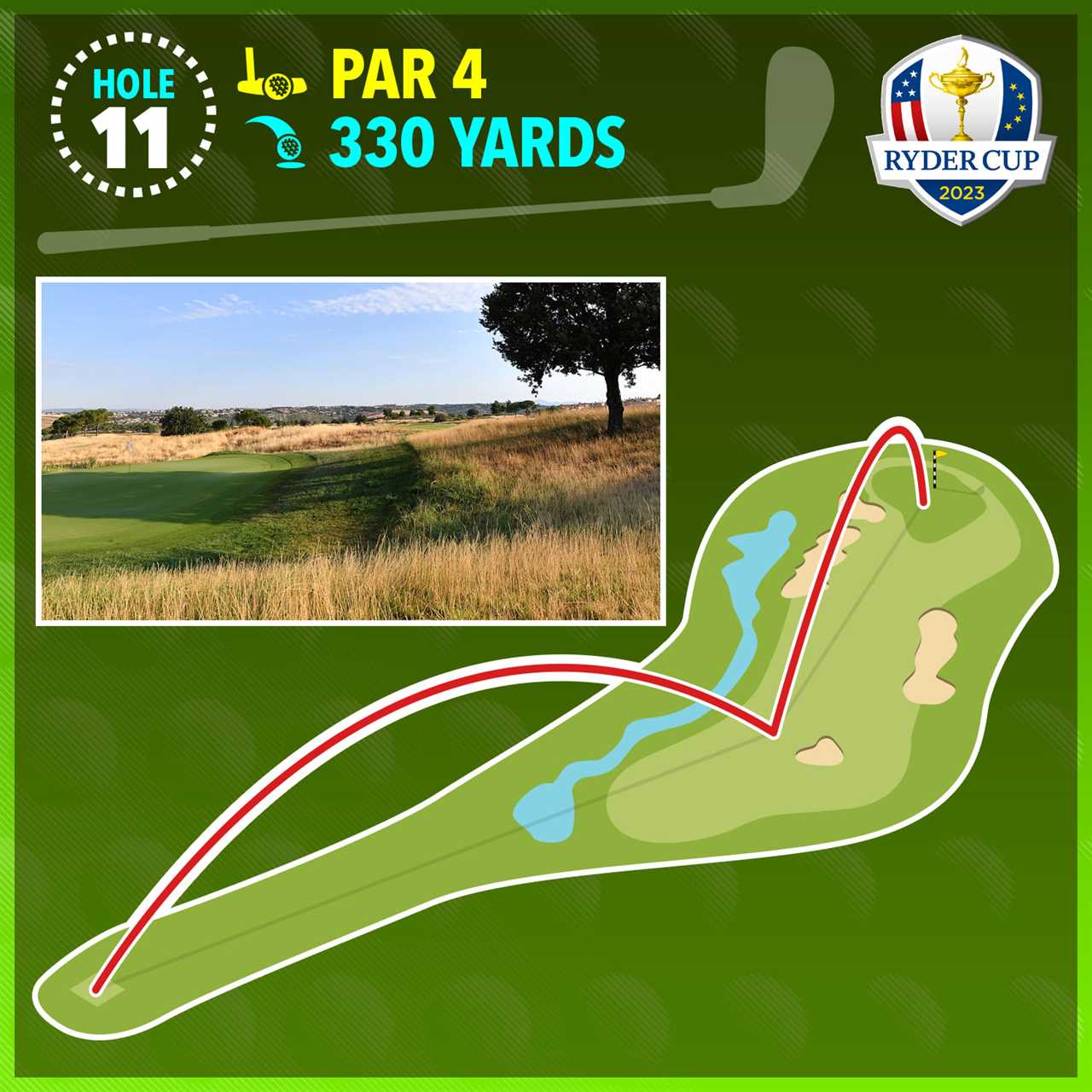
No.12, 554 yards, Par 5:
An accurate driver will provide for a long iron to reach the two-tiered greens. Par is likely to lose the hole here.
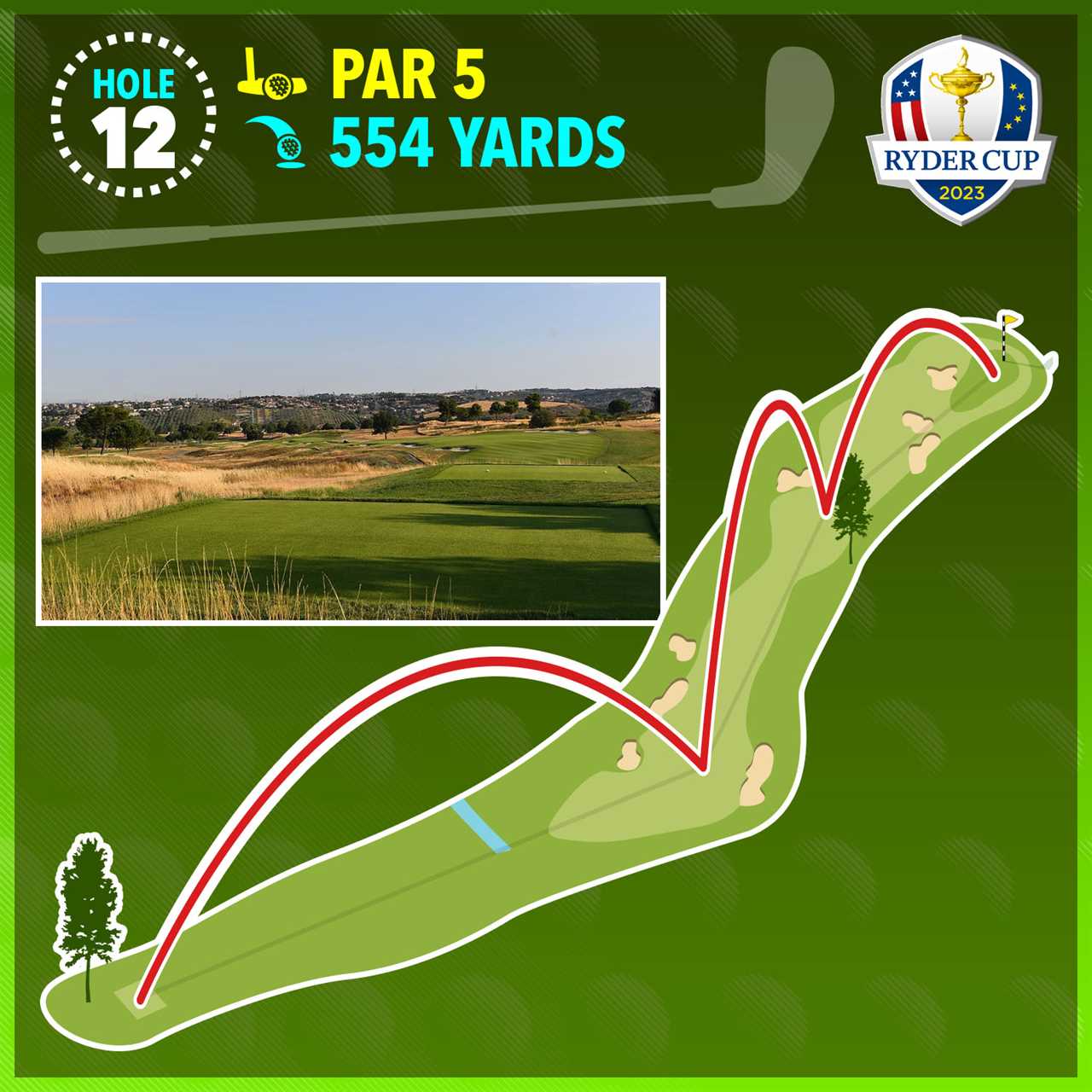
No.13, 145 yards, Par 3:
The difficulty of this short par 3 is the green being exposed and subject to wind.
The big miss is to the left of this two-tiered green.
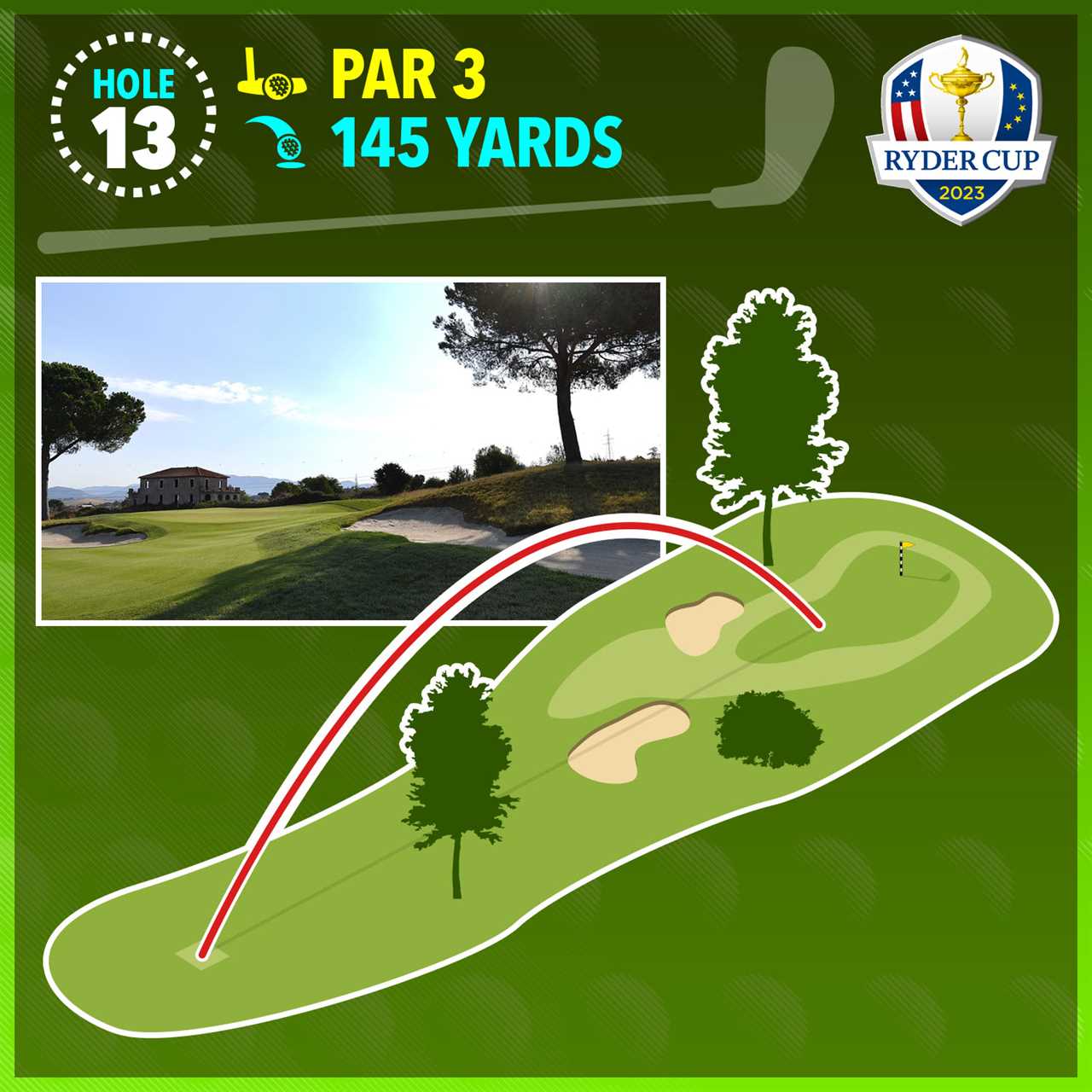
No.14, 495 yards, Par 4:
This long par 4 plays slightly downhill and only big hitters might try to cover the two bunkers on the left of this slight dogleg.
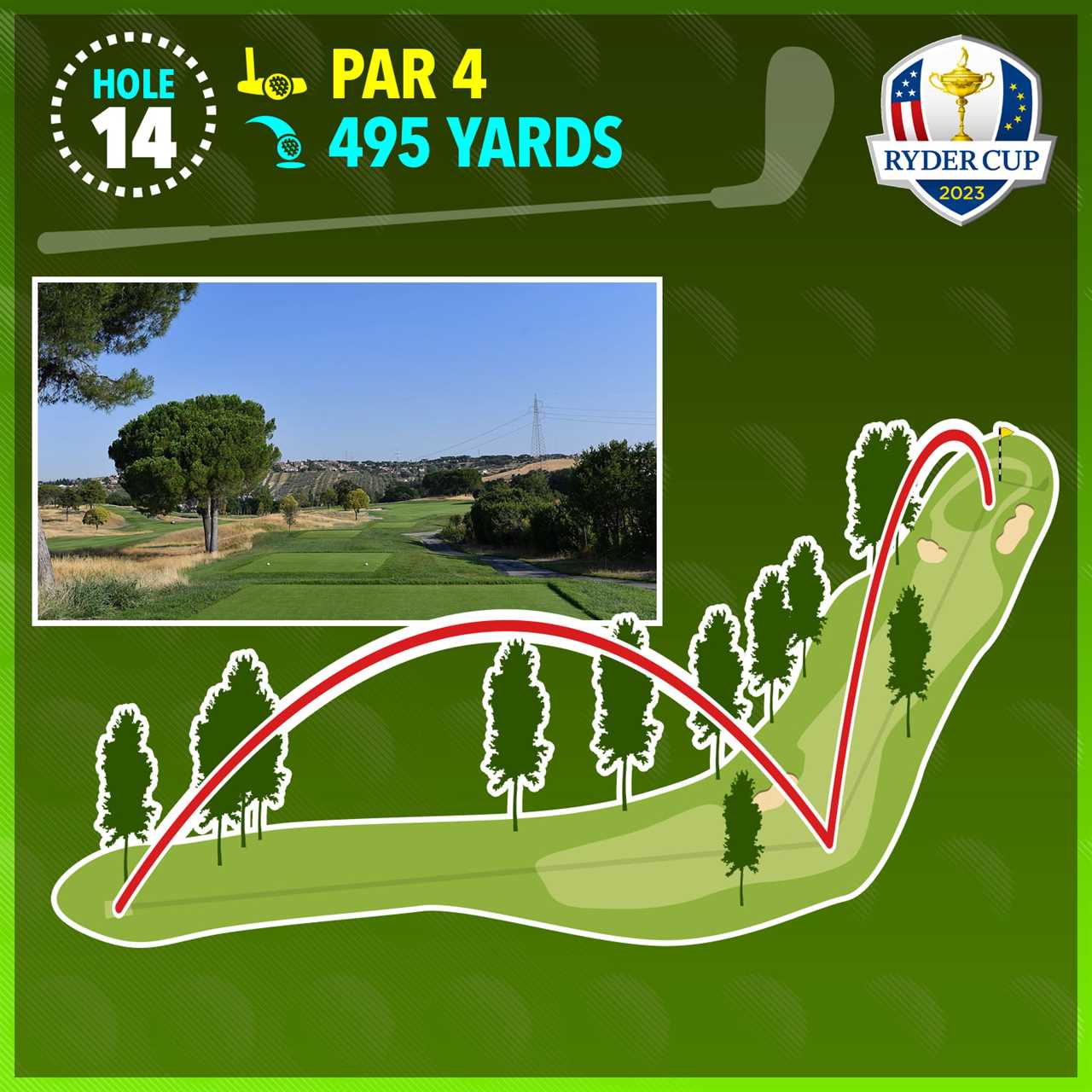
No.15, 478 yards, Par 4:
Bunkers are to the right on the tee shot and should be avoided to leave a mid-iron to a green that features three bunkers guarding the right side.
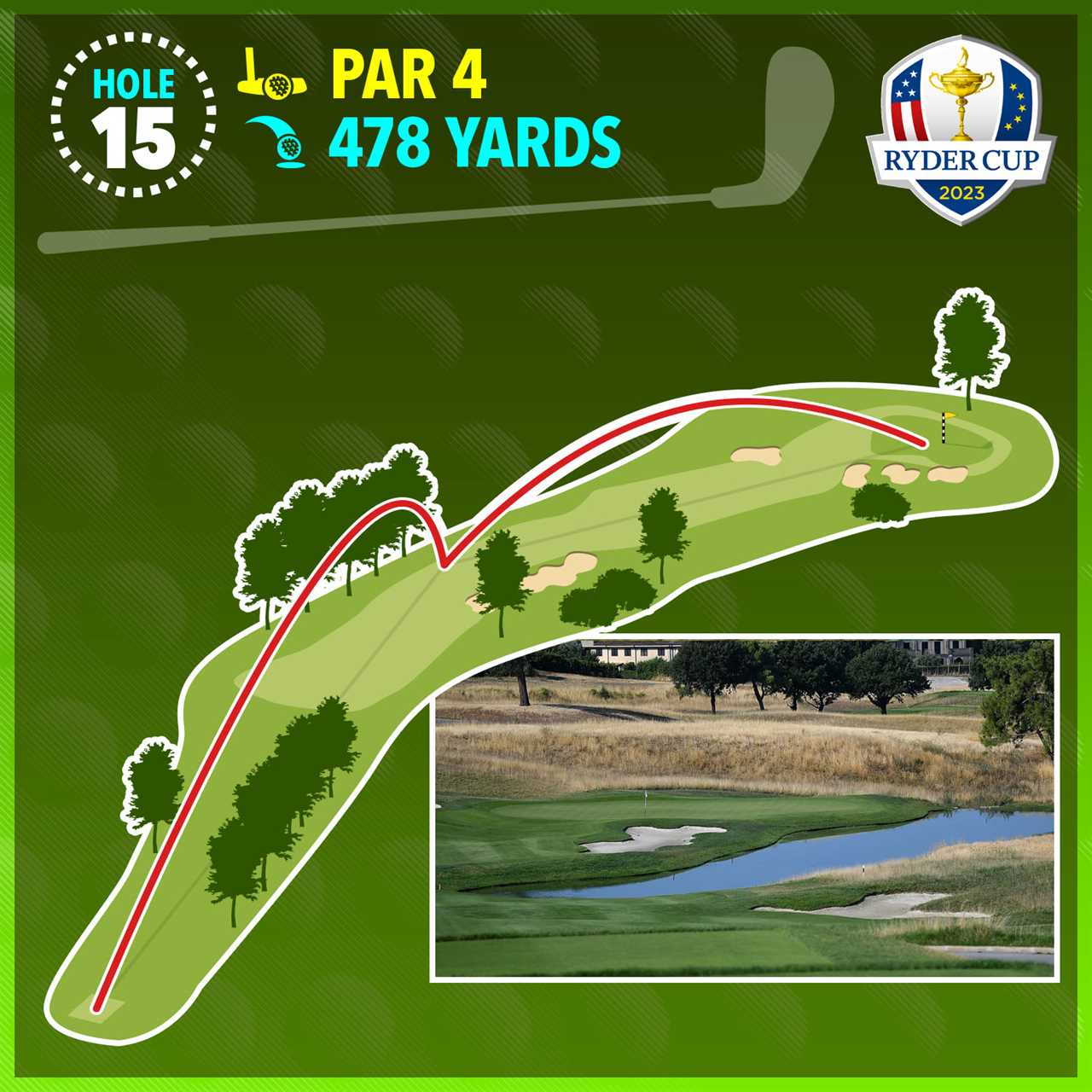
No.16, 352 yards, Par 4:
The safe play is a 200-yard tee shot that sets up a wedge to the green with a pond to the right.
But players might be tempted to use a driver to fly the ball 300 yards to cover the creek, there is two bunkers guarding the green and the water on the right to contend with.
This hole is set to be decisive should contests make it this far.
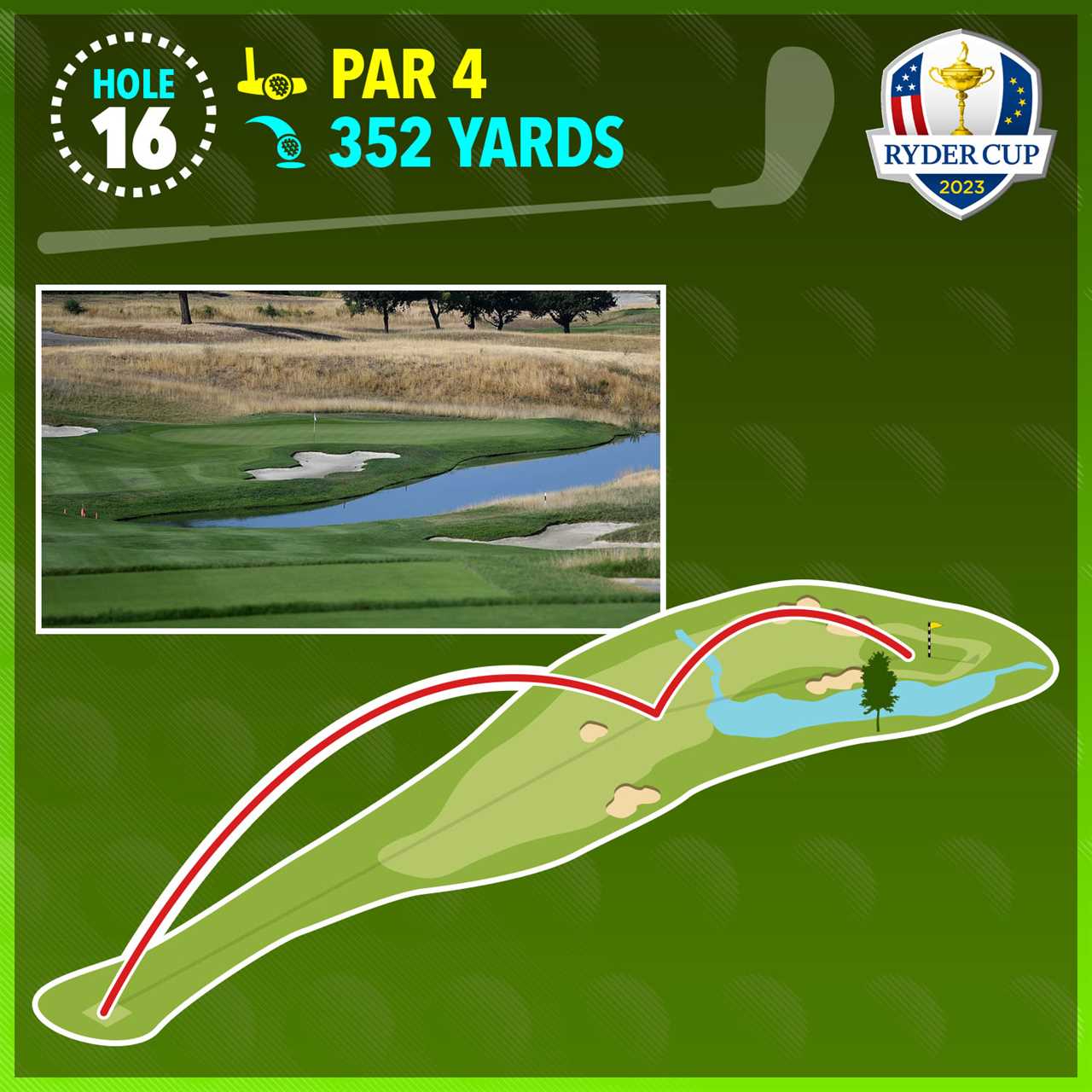
No.17, 206 yards, Par 3:
The hole slopes to the left, but its trouble to get tee shots caught in thick grass above the green to the right. A huge bunker is front and right.
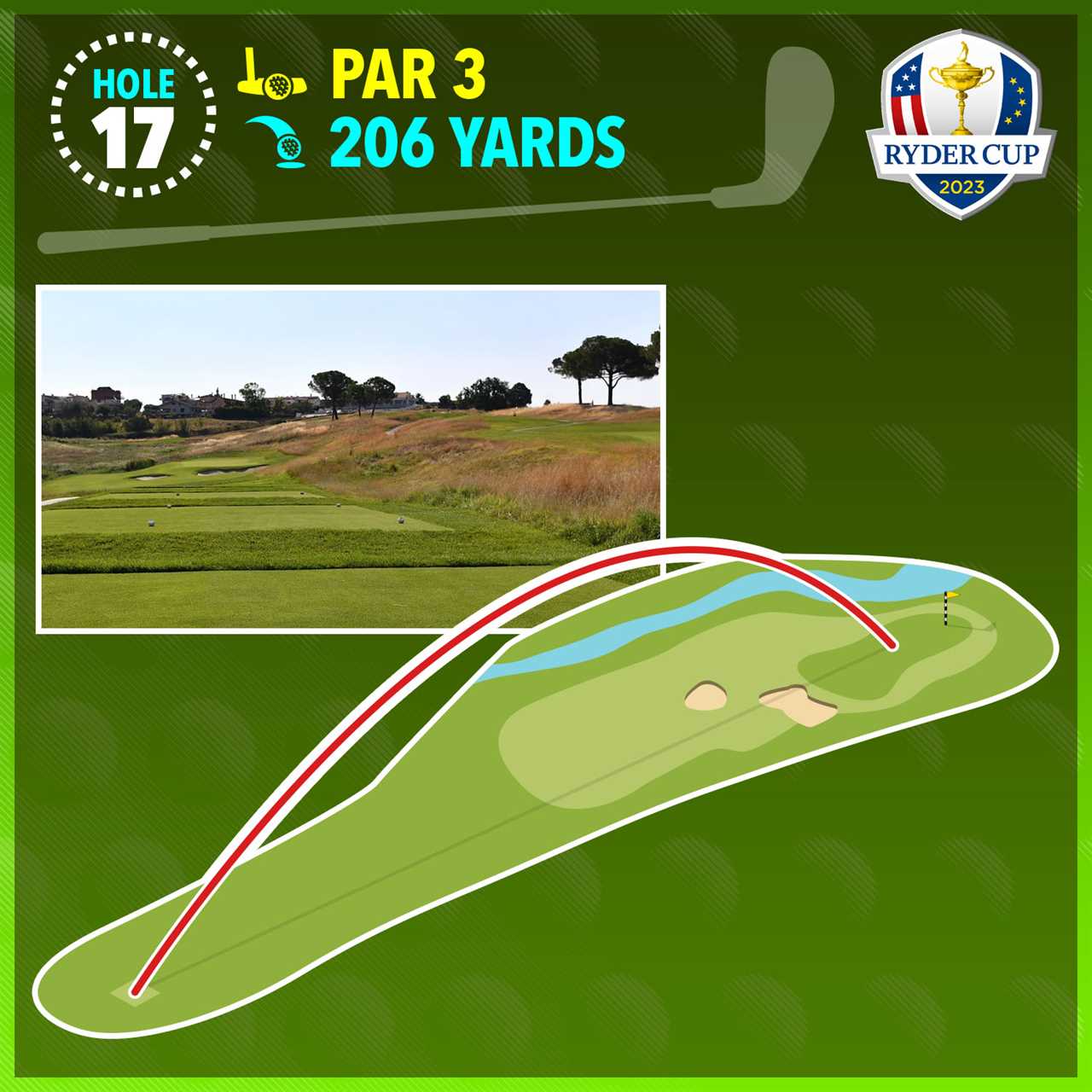
No. 18, 626 yards, Par 5:
For matches that get this far, the advantage is to the longer hitters, who can reach in two.
But there is a water hazard that juts out short and left of the green.
There’s a bunker short of the green, and the safe miss is a bunker on the right side.
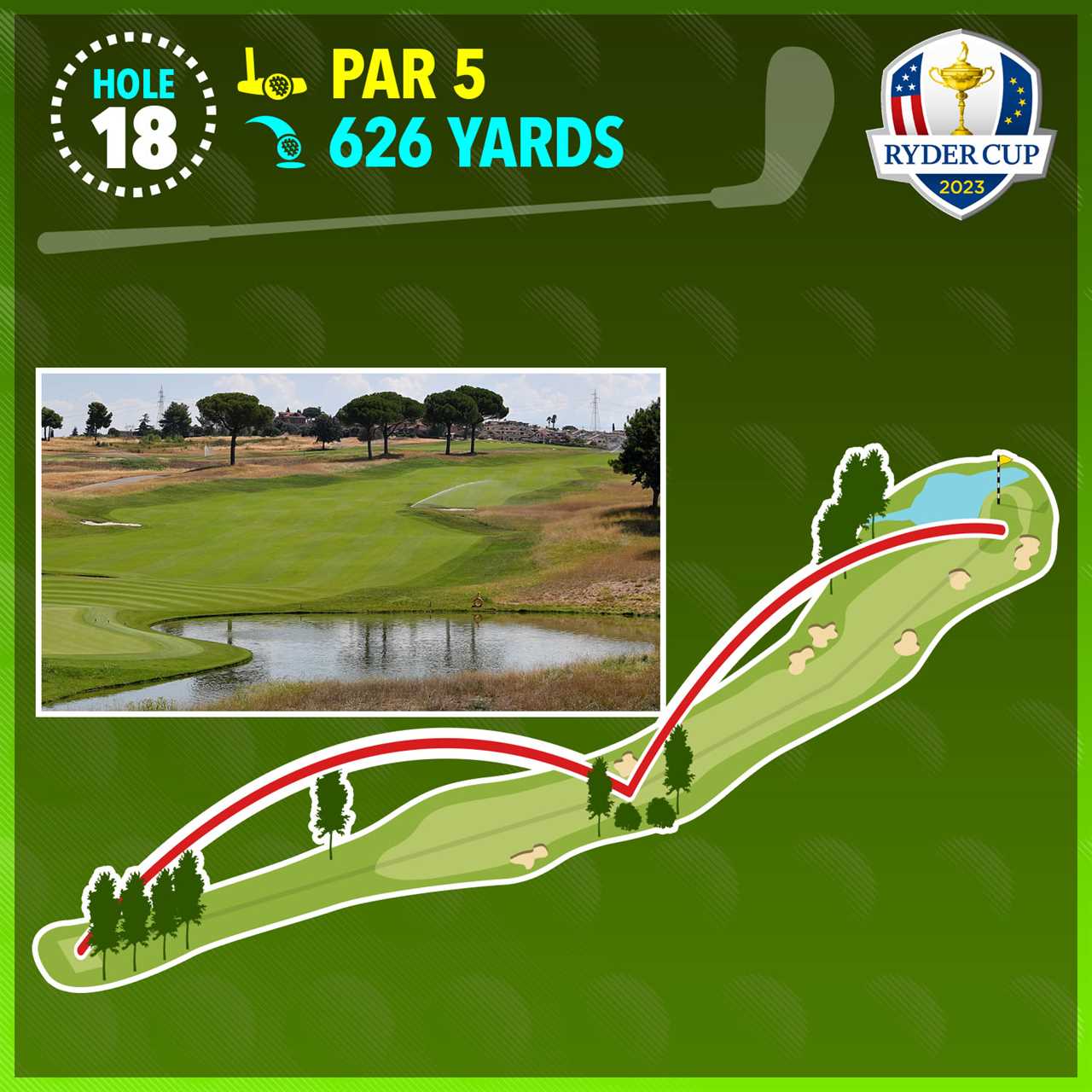
 In The RoughGolf TipsPrivacy PolicyTerms And Conditions
In The RoughGolf TipsPrivacy PolicyTerms And Conditions
